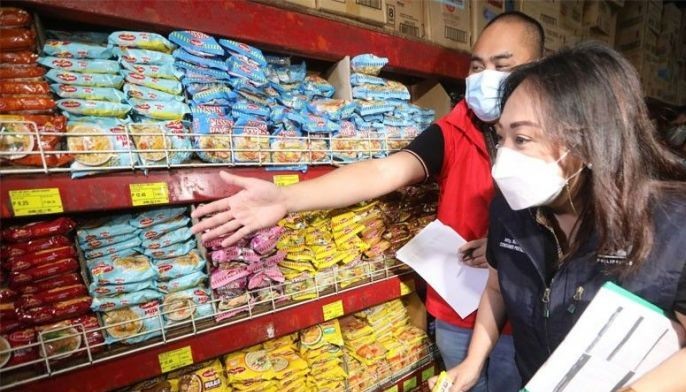MANILA, Philippines — Manufacturers of certain basic goods will have to wait a few more weeks for a decision of the Department of Trade and Industry (DTI) on their request for price increases.
“We’re still finalizing our recommendations for the Secretary’s approval,” Trade Undersecretary Ruth Castelo yesterday told The STAR in a Viber message. She was referring to new Trade Secretary Alfredo Pascual.
Castelo said the price increase requests – ranging from two percent to 10 percent – cover canned sardines, instant noodles, canned meat, coffee, bread and detergent.
Castelo said the DTI received the requests after it published its adjusted suggested retail prices (SRP) for basic necessities and prime commodities (BNPCs) in May.
She said earlier that rising cost of inputs prompted manufacturers to request for price increases.
Under the SRP list issued by the DTI in May, 82 stock-keeping units like canned sardines, processed milk, instant noodles, salt, detergent soap, processed canned meat and canned beef, toilet soap, battery, coffee and condiments were allowed higher prices.
Last month, the DTI emphasized that the issuance of an SRP bulletin for basic goods is authorized under the law, amid questions raised regarding its legality.
The DTI said it is one of the agencies implementing Republic Act 7581 or the Price Act and it chairs the National Price Coordinating Council.
The department issued the clarification following reports that the Canned Sardines Association of the Philippines said there is no enabling law and legal foundation for setting SRP.
The DTI cited Executive Order 913 issued in 1983, which vests the trade secretary with the power and authority to promulgate rules and regulations to implement the provisions and intent of “trade and industry laws.”
It also said that under the Price Act, the DTI secretary is authorized to issue, from time to time, suggested reasonable retail prices for any or all BNPCs under its jurisdiction to guide producers, manufacturers, traders, dealers, sellers, retailers and consumers.
The agency explained that it requires the submission of supporting documents to determine if proposed price adjustments from the manufacturers are reasonable and in line with Department Administrative Order 17-09 or the Guidelines on the Implementation of SRP of the BNPC under the agency’s jurisdiction.
It added that it also conducts independent research to validate the data submitted by the manufacturers.
“Clearly, the DTI approved and published SRP is but a reiteration of the supporting documents provided by manufacturers/producers, albeit adjusted according to relevant market factors, and to avoid profiteering,” the DTI said earlier.
Intervention
Meanwhile, Federation of Free Farmers chairman and former agriculture secretary Leonardo Montemayor said government intervention is urgently needed to narrow the gap between farm gate and retail prices of commodities.
“It’s not the fault of farmers that there are so many layers there. It’s a question of marketing efficiencies or even perhaps market failures,” he said at a virtual press briefing by Tugon Kabuhayan yesterday.
Farm gate price of bangus, for instance, is at P110-115 per kilogram. It retails at P200-210 per kilogram.
“The mark up from farm gate to the market is already P100 easy,” Philippine Association of Fish Producers Inc. (PAFPI) chairman David Villaluz said, noting that there are five to six layers of middlemen.
PAFPI has been pushing for cold storage at processing plants to process fish products and eliminate the need for middlemen, Villaluz said.
In the case of pork products, the average farm gate price of hogs declined from P230 per kilo – the highest live weight price this year – to P200 per kilogram three weeks ago.
However, retail prices of pork reached more than P400 per kilogram at that time, National Federation of Hog Farmers Inc. president Chester Warren Tan said.
“When we talked to the Bureau of Animal Industry director at that time, we couldn’t understand. While the farm gate price is going down, the prices in the wet market kept going up,” he said.
Tan said government should intervene in this situation and investigate why retail prices remained high despite decline in farm gate prices.
“We are facing a challenge because of rising input costs, so the cost to produce is getting more expensive but at the same time, the selling price is declining. We can’t do anything about it, we just have to go on our business, hoping the cost of inputs go down,” he said.
As a countermeasure to rising input costs, Tan said there should be government-owned transport vehicles and vessels to allow the subsidized movement of agricultural products.
“Currently, it’s all privately owned. Unlike in other countries, they have government-owned facilities and transportation,” he said. “Hopefully this administration will have something like that, either free or subsidized to lessen the transportation cost that will be passed on to consumers.” — Danessa Rivera


